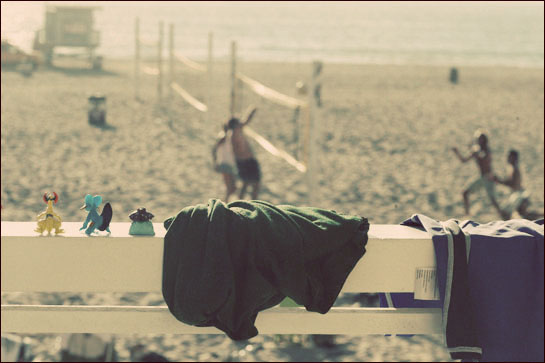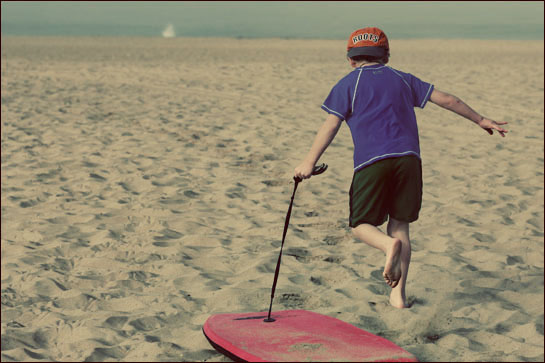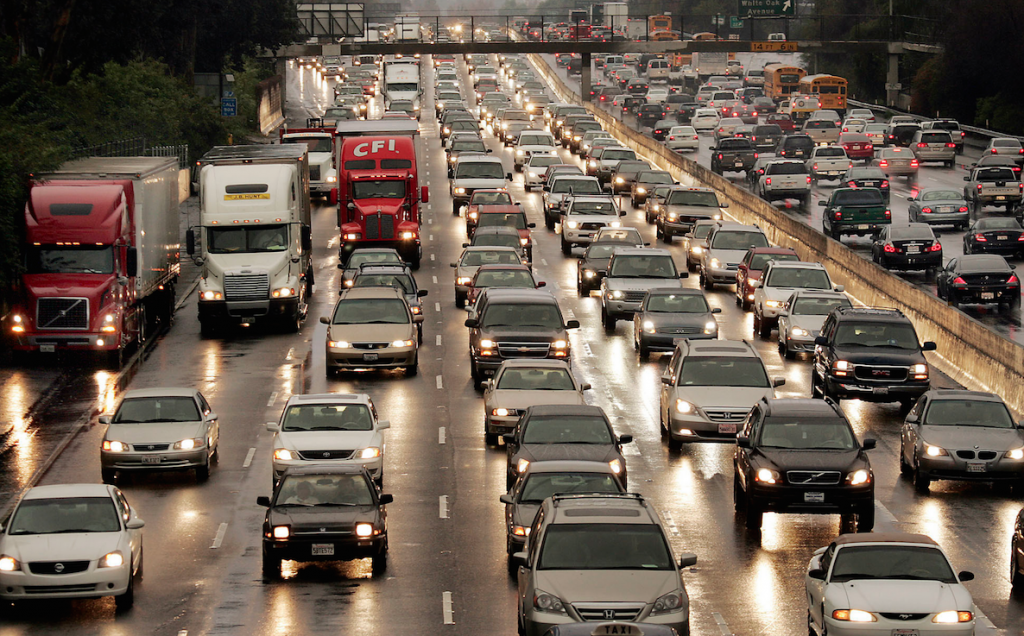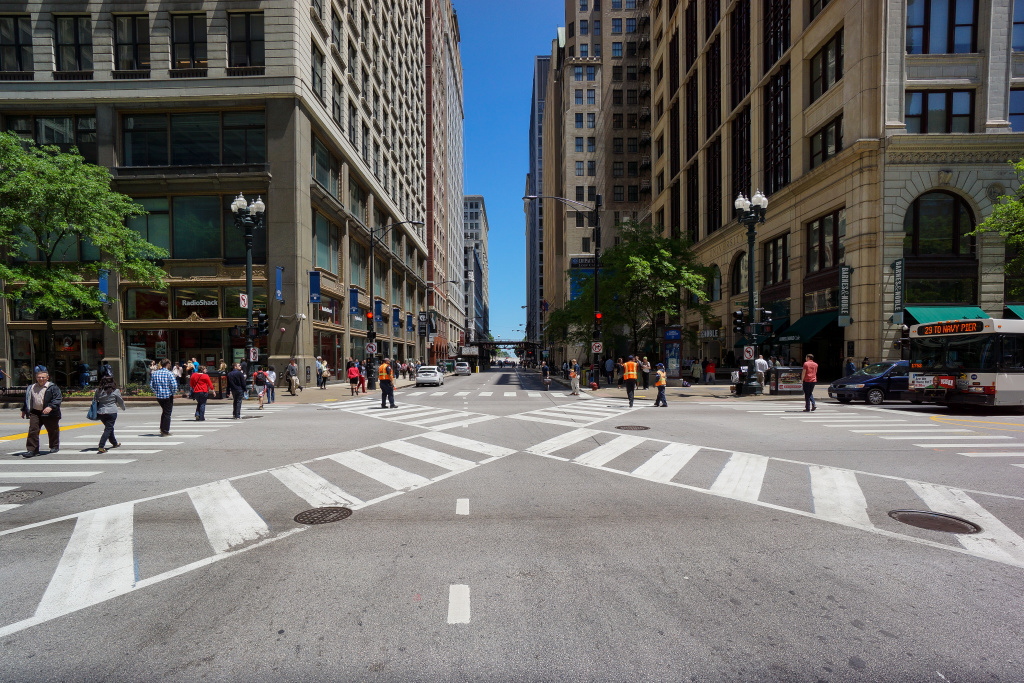Last fall I took my kids to Hermosa Beach. It was a big moment for me because the whole time I was playing professional volleyball, in my 20s, I dreamed I would have a family and live in Hermosa.
It's a great beach town with top-notch volleyball. There's proximity to good career opportunities in the LA area, and a culture of kids growing up with sand in their hair.

The day we arrived I realized that it might be really hard to leave. I worried that maybe I'd never go back to the farm. And the more the kids loved the water, the more closely I looked at For Rent signs. I thought maybe I could split my time between the beach and the farm.

But then something happened. We didn't miss only The Farmer (who doesn't like to leave the Farm). We missed the animals, and the feeling of being in a cozy warm house surrounded by snow.
Which made me realize that when we think about relocation, we think about the wrong stuff.
1. We focus on what we gain instead of what we lose.
When people think about relocating they think almost exclusively about what they will gain by going to the new city, but psychologically we are affected much more by what we lose.
When people think about relocating they think almost exclusively about what they will gain by going to the new city, but psychologically we are affected much more by what we lose.
For example, if we sell stocks high and win, the emotional impact is less than if we sell stocks low and lose. We hate losing, and we are hard-wired to care more about what we lose. So instead of thinking about what you'll gain by moving, think about what you'll lose. What will you miss? Because that's what you'll think about the most.
Think about what you are actually willing to give up. Each relocation is really about giving up stuff that you have now that you won't have later. Getting new, fun stuff is going to be great. But knowing what you can do without is more important. And more mature. Because the most adult decisions in your life are ones that put severe limits on other possibilities.
2. We underestimate the commute.
I know this one very well. You think you have something that outweighs everything—the big house, the fun job, the good schools—for me it was living on a farm.
I know this one very well. You think you have something that outweighs everything—the big house, the fun job, the good schools—for me it was living on a farm.
But if that entails a huge commute in order to get everything you want, well, then the truth is you can't have everything you want. The commute makes you more unhappy than any of that stuff can make up for.
3. We waste time visiting in person before moving there.
When you decide where to live, it should be based on the essential issues—proximity to people you love, ability to earn a living, and so on. These are questions you can answer online, or with a phone call to a friend or relative.
When you decide where to live, it should be based on the essential issues—proximity to people you love, ability to earn a living, and so on. These are questions you can answer online, or with a phone call to a friend or relative.
To try to find out if you are a cultural fit by visiting is absurd. It is impossible to get the sense of a city from just one visit. A large city is different block by block, neighborhood by neighborhood, and you could not get a taste of all of them in a visit. You will have to read about them and trust statistical analysis in order to choose.
So a visit to a city gives you a skewed view and will simply mess up your decision-making process by giving too much weight to sketchy data. Wherever you decide to move, a good real estate agent will know exactly where in the area you should live.
4. We overestimate the raise.
Nobel Prize-winning economist Daniel Kahneman summarizes decades of happiness research this way: “It is only a slight exaggeration to say that happiness is the experience of spending time with people you love and who love you.” (via Jonah Lehrer in Wired)
Nobel Prize-winning economist Daniel Kahneman summarizes decades of happiness research this way: “It is only a slight exaggeration to say that happiness is the experience of spending time with people you love and who love you.” (via Jonah Lehrer in Wired)
So then it should come as no surprise to you that if you are relocating away from people you love in order to get more money, you should think twice.
Nattavudh Powdthavee of the University of London did the computations to show that you need to get a raise of $130,000 to compensate for the happiness you will lose by moving away from friends and family.
5. We think we are an exception.
Look at the demographics of the city. You are normal. You are regular. You are going to become the mean of your demographic. It's the law of nature. Average is average because that's what most people are. You make your life overly complicated by living in a fantasy world where you are not typical.
Look at the demographics of the city. You are normal. You are regular. You are going to become the mean of your demographic. It's the law of nature. Average is average because that's what most people are. You make your life overly complicated by living in a fantasy world where you are not typical.
Once you accept that, you can use research to its full benefit. For example, even if you earn $500,000, you will not feel rich if all your neighbors earn a lot more than you. This is the law of financial happiness – that it’s relative, not absolute, and you feel best when you are an average earner in your community. Too high and you feel like an outcast, too low and you feel desperate.
The same is true of city living. Cities are not appealing to normal parents. This is because marriages do not stay together when two parents need to earn huge incomes. Women simply do not want to have their kids raised by nannies. This means that only families where there is a single wage earner in the very highest of brackets does city living look appealing. Otherwise, the compromises a family makes to live in a city leaves them short on benefits. (If nothing else, parents who work all day and tuck kids in to bed every night have no time or energy to enjoy the cultural benefits of a big, expensive city.)
6. We trust a cost-of-living calculator.
The problem with this tool is that it gives you information you can’t use. You need to know which city will make you happy, not which city will save you $20,000 in housing costs.
The problem with this tool is that it gives you information you can’t use. You need to know which city will make you happy, not which city will save you $20,000 in housing costs.
Let’s say you’re thinking of moving from San Francisco to New York City. They’re both really expensive to live in, so the difference in your salary isn’t going to matter. You should probably think harder about their cultures than about money; very few people fit in well in both cities, and most feel like they belong in one or the other. A calculator can’t tell you that.
Now let’s say you’re moving from New York City to Los Angeles. You’ll save money on housing, of course, but you’ll need a really good car.
In L.A., a BMW is totally reasonable. You’ll end up spending more time there than in your apartment. In NYC, however, owning a BMW is commonplace only among millionaires. For most New Yorkers, having a car like that is absurd—they just don’t drive enough. But cost-of-living calculators don’t have a “BMW: yes or no” option.
7. We overlook key research.
When I relocated from NYC to Madison, I did tons of research. I knew everything about happiness and economic development and I knew what I was getting into even though I never stepped foot in Madison before I moved there.
When I relocated from NYC to Madison, I did tons of research. I knew everything about happiness and economic development and I knew what I was getting into even though I never stepped foot in Madison before I moved there.
But I ignored a crucial piece of research: The schools. I simply could not believe that the schools were as bad – relative to the rest of the country – as all the data showed. It's a university town, I reasoned. It's liberal. They must raise taxes a lot for schools. I couldn't believe it. But it was true. And I ended up having to leave Madison because the schools were so bad.
Then I moved to the country. I paid a lot of attention to the research about optimizers. People in the country are generally content with a relatively simple life with few options. City people complicate their lives with lots of choices for all the best stuff, but that doesn't make them happy. And you become like the people you live with. Really.
So I decided to become a content, country person by moving to where they live.
It turns out that choosing a location is a lot like choosing a mate. What you decide to overlook ends up being the most important part of your decision. You know what is going to be hard about the life you are choosing and you know that you are deciding to ignore it and go ahead with the choice anyway. We never really know if we are making a good decision or if we'll have to get over it.



